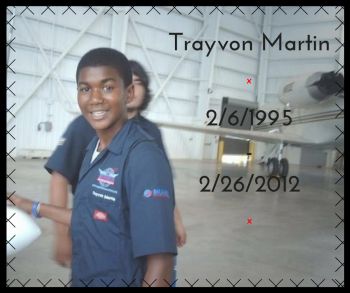Honoring Trayvon Martin: Black Boys Deserve More

By Catie Armstrong, Juvenile Justice Fellow
Five years ago, on the evening of Feburary 26, 2012, 17-year-old Trayvon Martin was killed. After visiting a local convenience store, Trayvon began walking home, armed only with the bag of Skittles and Arizona Iced Tea he had just purchased. A 28-year-old man, armed with a gun, shot and killed Trayvon that night.
Trayvon’s death shook the nation with grief, fear, and anger. This tragedy ignited a conversation about how we label young men of color in the United States. In the five years following our nation’s loss of Trayvon, we have unfortunately seen time and time again the over-criminalization of black bodies. Trayvon, walking home alone at 17 years old, was unjustly seen as a threat and lost his life because of it.
This trend is not new, even if it has only recently become news. We have seen racial disparities plaguing our justice system for as long as we have seen it plaguing our television screens. In the United States, African-American youth are nine times more likely to receive an adult prison sentence than white youth. This statistic, partnered with the cases of Trayvon Martin, Michael Brown, Tamir Rice and so many more tragic deaths, begs the question of why society is so quick to view black boys as criminals before they are even viewed as men.
While juvenile crime and arrest rates are declining, the racial disparities of youth held in jails and prisons have grown to disproportionately encompass black youth. Since 2003, the racial disparities within our criminal justice system, including our juvenile justice system have grown exponentially. A report from the Center on Juvenile and Criminal Justice revealed that in 2003, black youth in California were 4.3 times more likely to be directly filed into the adult system than White youth in the same state. In 2014, that number skyrocketed to 11.3 times more likely.
This information is troubling and deserves our utmost attention. It is impossible to deny that racial prejudices are still prevalent in our society. Just as we see the harmful impact of these prejudices in the everyday lives of African-American youth, they disproportionately impact our criminal and juvenile justice system as well.
It is time we stop automatically labeling young men of color as dangerous, both in the eyes of the law and the eyes of the society that has treated them so wrongfully. Trayvon deserved better, our youth deserve better, and America owes it to them to prove that.

